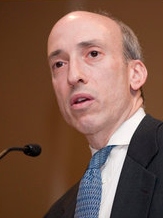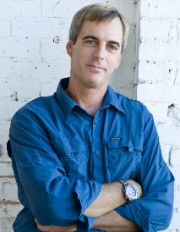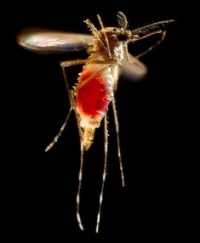Guest Writer
Guest Writer's Latest Posts

Real estate agents
My wife and I arrived in Cayman in 2005. We found that finding somewhere to rent was difficult and everything suitable was very expensive. Within a week, however, we found a two-bed condo in Prospect at a monthly rent of $2,400. After three months the owner told us that she was selling and offered us first refusal. We agreed to pay the assessed value of $259,000.
Our monthly repayments amounted to about the same as our rent had been and we hoped that with rising prices we would certainly not lose money and might even make some when we eventually sold.
In February last year we decided to leave the island permanently. I approached several real estate brokers. They were all very keen to act for us but every one of them quoted 7% as their commission. Not one of them would negotiate on this rate.
This is price fixing at its most blatant.
In 2003 we had moved house within London. The average rate charged by estate agents at that time was 2.5% but after shopping around, we found a reputable company who charged us 1.5% for selling our house, the only proviso being that they were the sole agents.
Cayman has a population of around 55,000. Lowestoft, the town that I grew up in, has a population of 73,000. It is a town on the east coast of England and in some ways it is rather like an island. The nearest towns to it are 10 miles north, 8 miles west and 25 miles south. It is surrounded by sparsely populated farmland.
Lowestoft has 8 estate agents with just one office each. Cayman appears to have more than 40 realtors and around 90 offices.
In April last year our condo was assessed independently at $304,000. We were worried that the market seemed to be sinking and as wanted to leave by July, we decided to ask for $296,000. I put up a sign on the main road advertising that a condo was for sale and giving my cell phone number. I advertised on CNS. I can’t remember the rate now but I didn’t pay more than $200 in total. We also took out one ad with a photo in the Compass at a cost of $380.
If we sold for $296,000 through a realtor, that realtor would have got nearly $21,000 in commission and for doing what? Putting a couple of ads in the paper and making a few phone calls, that’s all. They’ll say that they do a lot more than that but none of them could ever tell me what, exactly. “It will go on our web site,” was the best they could come up with.
I started getting phone calls but they were nearly all from real estate brokers. “Will you sell it for 4%?” I asked them. “No.” “6%?”“No.”
Two of them were rude and they all told me that we wouldn’t manage it on our own. One of them turned up one day, unannounced, with a couple whom they showed around the grounds and then asked me if they could see inside. I explained to the couple that I would sell to them but only if they paid the realtor’s commission. They weren’t keen.
After two months, as a result of the ad in CNS, we accepted an offer of $275,000. Ironically, the purchaser is the senior partner in one of the largest realtors on island. I think we sold just in time. Why anyone would sell through a broker is beyond me. In the UK such a ‘ring’ would be illegal.
Cayman is a very small place. Anyone wanting to move house will be looking at the private advertisements in the papers as a matter of course and an ad with CNS, accompanied by photographs, will gain the attention of many people who may not even have been thinking about moving until that time. We got calls and visits from people who had seen the six photographs online, thought that it looked nice and then, for the first time, thought about moving.
An island the size of Cayman can’t support so many realtors. If there were fair competition, the only businesses to suffer would be the incompetent and the inefficient. The customer would always benefit.
These restrictive practices are rife. We bought most of the goods for our refurbished kitchen at a large store but they didn’t sell wall tiles. We were told that if they did they would undercut a nearby business and so put them out of business.
In how many other places are prices kept artificially high? I think you could be looking at Cable TV, car hire, electrical goods, bars and restaurants for a start.

New powers to tackle gang culture in UK
 (The Guardian): Gang members could be banned from wearing distinctive colours or entering rival territory under new powers coming into force today. Gang injunctions will aim to break down gang culture and also give civil courts the power to ban people from going out in public with dogs that have been used as weapons, James Brokenshire, the crime prevention minister, said. The powers will tackle a "higher level of criminality" than antisocial behaviour orders (Asbos), but will not lead to a criminal record if breached. Announcing the new measures last month, Brokenshire said: "Gangs cause significant and lasting harm to our communities through fuelling violence, creating an atmosphere of fear and drawing young people into criminality."
(The Guardian): Gang members could be banned from wearing distinctive colours or entering rival territory under new powers coming into force today. Gang injunctions will aim to break down gang culture and also give civil courts the power to ban people from going out in public with dogs that have been used as weapons, James Brokenshire, the crime prevention minister, said. The powers will tackle a "higher level of criminality" than antisocial behaviour orders (Asbos), but will not lead to a criminal record if breached. Announcing the new measures last month, Brokenshire said: "Gangs cause significant and lasting harm to our communities through fuelling violence, creating an atmosphere of fear and drawing young people into criminality."

Amazon Kindle e-book downloads outsell paperbacks
 (BBC): Amazon has announced that in the US it sold more e-books for its Kindle device than it sold paperback books in the last three months of 2010. But its profit margins were down as it spent money on discounting, acquisitions and building new depots. Amazon shares fell 9% in after-hours trading as its sales were not as good as had been expected. Three month net sales passed $10bn for the first time, up 36% to $12.95bn, but analysts had predicted a higher figure. Three month net income came in at $416m (£262m), which was up 8% from the same period last year. The world’s biggest online retailer’s operating margin declined to 3.7% from 5% at the end of 2009 and the company warned that it would be between 2.8% and 3.8% in the first three months of 2011.
(BBC): Amazon has announced that in the US it sold more e-books for its Kindle device than it sold paperback books in the last three months of 2010. But its profit margins were down as it spent money on discounting, acquisitions and building new depots. Amazon shares fell 9% in after-hours trading as its sales were not as good as had been expected. Three month net sales passed $10bn for the first time, up 36% to $12.95bn, but analysts had predicted a higher figure. Three month net income came in at $416m (£262m), which was up 8% from the same period last year. The world’s biggest online retailer’s operating margin declined to 3.7% from 5% at the end of 2009 and the company warned that it would be between 2.8% and 3.8% in the first three months of 2011.

Insomnia damages relationships, according to study
 (BBC): Lack of sleep needs to be treated as a major health issue, according to a report published by the Mental Health Foundation. The report, Sleep Matters, suggests a link between insomnia and poor relationships, low energy levels and an inability to concentrate. Poor sleep has already been linked to depression, immune deficiency and heart disease. The report calls for GPs to have more training to recognise the symptoms.
(BBC): Lack of sleep needs to be treated as a major health issue, according to a report published by the Mental Health Foundation. The report, Sleep Matters, suggests a link between insomnia and poor relationships, low energy levels and an inability to concentrate. Poor sleep has already been linked to depression, immune deficiency and heart disease. The report calls for GPs to have more training to recognise the symptoms.

Hug an ex-pat a day
 (CNS): Ex-pats on island need to feel like they are wanted, in order to remain on island and be prevented from feeling the need to flee to another country where they can end up working as competitors to Cayman, according to Theo Bullmore, retired senior partner with KPMG. “Metaphorically speaking, Caymanians need to hug an ex-pat a day, and vice versa,” he said, during a panel discussion at this year’s Cayman Business Outlook conference. Bullmore was responding to the question as to how Cayman ought to be increasing its population to fuel consumption and therefore expand the economy, posed by moderator Austin Harris, talk show host with Rooster 101.
(CNS): Ex-pats on island need to feel like they are wanted, in order to remain on island and be prevented from feeling the need to flee to another country where they can end up working as competitors to Cayman, according to Theo Bullmore, retired senior partner with KPMG. “Metaphorically speaking, Caymanians need to hug an ex-pat a day, and vice versa,” he said, during a panel discussion at this year’s Cayman Business Outlook conference. Bullmore was responding to the question as to how Cayman ought to be increasing its population to fuel consumption and therefore expand the economy, posed by moderator Austin Harris, talk show host with Rooster 101.
The panel discussion was provocatively entitled: “Things Tough! So Don’t Cut My Pay, Tax Me Less & Give Me More Free Services … And Do Something About Crime … Education … and Jobs. And What About Those Expats?” with panelists UCCI President Roy Bodden, Work Permit Board Chairman Sherri Bodden-Cowan, Admiral’s Managing Director Canover Watson, Burns Conolly Group Managing Director Burns Conolly and businessman Tom McCallum joining Bullmore for frank discussion of issues facing Cayman.
Bullmore said that there were only two ways to grow the population from within – get Caymanians to procreate more or, alternatively, get more ex-pats on the island. This would then bring the population up to where it was before the island lost around 10 per cent of its residents. Bullmore suggested ways to increase the ex-patriot community on island by perhaps paying a $1,000 bounty to Caymanians for every person that they bring to the islands from overseas.
“If we don’t make up that 10 per cent that we lost we will never be able to get back to where we once were,” he said.

HSBC under tax-evasion investigation
(WCJB.co.uk) HSBC may be served legal summons for allegedly helping wealthy Americans evade tax. The matter has come to light following the indictment of a rich client on charges that an unnamed international bank assisted in the stashing of large funds in offshore tax havens India and British Virgin Islands. People in the know have confirmed that the bank in question is HSBC, a London based establishment with worldwide private banking services. The man indicted is Vaibhav Dahake of Somerset, New Jersey, a wealthy Indian-American.

Regulators move to bolster oversight of hedge funds
 (New York Times): Financial regulators are planning to collect confidential information from hedge fund managers and other investment advisers, as the government moves to shed more light on the private investment world. The plans, drafted by the Securities and Exchange Commission and the Commodity Futures Trading Commission, or CFTC, would require some investment advisers to periodically turn over private data, including details about their trading and the amount of assets they manage. Although the proposed disclosures are not comprehensive, regulators hope the new information will help them determine whether hedge funds or other investment firms pose a systemic danger to the economy. The Dodd-Frank Act, the financial regulatory overhaul enacted in July, mandated such reporting.
(New York Times): Financial regulators are planning to collect confidential information from hedge fund managers and other investment advisers, as the government moves to shed more light on the private investment world. The plans, drafted by the Securities and Exchange Commission and the Commodity Futures Trading Commission, or CFTC, would require some investment advisers to periodically turn over private data, including details about their trading and the amount of assets they manage. Although the proposed disclosures are not comprehensive, regulators hope the new information will help them determine whether hedge funds or other investment firms pose a systemic danger to the economy. The Dodd-Frank Act, the financial regulatory overhaul enacted in July, mandated such reporting.

Debut novel by Little Cayman resident is eco-thriller
 (CNS): What happens when you have to choose between doing the right thing, knowing disaster will ensue, or doing the wrong thing and saving everything you love? Little Cayman resident Tim W. Jackson addresses that dilemma in his debut literary novel, Mangrove Underground, published January 2011 by The Chenault Publishing Group. Set in the Florida backcountry, Jackson’s novel has its roots deep in the state’s eco-thriller tradition. Yet it subtly subverts the expectations of the genre with its story of one man’s betrayal and redemption before a backdrop of wildfires, environmental extremism and real estate skullduggery that could have been pulled directly from today’s headlines.
(CNS): What happens when you have to choose between doing the right thing, knowing disaster will ensue, or doing the wrong thing and saving everything you love? Little Cayman resident Tim W. Jackson addresses that dilemma in his debut literary novel, Mangrove Underground, published January 2011 by The Chenault Publishing Group. Set in the Florida backcountry, Jackson’s novel has its roots deep in the state’s eco-thriller tradition. Yet it subtly subverts the expectations of the genre with its story of one man’s betrayal and redemption before a backdrop of wildfires, environmental extremism and real estate skullduggery that could have been pulled directly from today’s headlines.
The tale is told in a series of intertwined narratives, each with its own storyteller. As the stories slowly converge, they convert a former perpetrator into an unlikely hero as he discovers the sacrifices that must be made to save his community and create a life he can be proud of. “Mankind’s struggle with right vs. wrong is a timeless theme, and this is ultimately a story of redemption – although there are plenty of surprises and twists along the way,” says Jackson.
Author C.W. Smith says of Mangrove Underground: “Plotted with the complexity of a Chinatown, Jackson’s novel boasts a gritty authenticity coupled with literary mastery to achieve a vivid portrait of a place writhing in the grip of change.”
A former press photographer in Florida, Jackson gained first-hand knowledge of backcountry firefighting while accompanying fire crews battling wilderness blazes. He also spent much time canoeing and hiking throughout the backcountry that serves as the backdrop for Mangrove Underground.
Following a 10-year journalism career, Jackson returned to academia to earn a Master of Arts in English at Southern Methodist University in Dallas, Texas. His non-fiction travel writing about the Florida wilderness has appeared in the Tampa Tribune. His short fiction has appeared, or is forthcoming, in the High Plains Literary Review, Confrontation, Palo AltoReview, Oracle Story and Letters and Conceit.
Jackson has worked as a boat captain and scuba instructor at Conch Club Divers on Little Cayman since 1999. He is finishing a second novel, set in the Caribbean, as well as a related collection of island-based short stories.
Mangrove Underground will be available in local bookstores, at the Little Cayman National Trust House, online, and in all e-book formats. To learn more about Mangrove Underground, visit the author’s website at www.timwjackson.com.

Real Estate in Cayman
The problem with Cayman real estate is that it was driven by a tax-free wealth preservation and speculative marketing structure. Most non-resident buyers purchased property with the expectation that it would either increase in value or be paid for by rental returns. Since their investment was offshore, any equity growth or value appreciation would remain tax-free until it was repatriated.
Since no one likes to pay taxes the wealth captured here was seldom repatriated; it was either land-banked (sic) or rolled over into more expensive properties.
The strength of this recession changed attitudes a lot. Foreign private owners are not only cashing out because they need the money but also because of tax treaties and new opportunities — the world is saturated with great deals and great places to live. Even our Caribbean neighbors are getting their act together; just look at the homes in Caribbean lifestyle magazines or at St Kitts and Nevis, where they throw in a new passport for a purchase over $350K.
Our once powerful and unique sales pitch resulted in the continuous expansion of property investment, development and price increases, a self-fulfilling prophecy that encouraged more foreign buyers. The residential population and expatriate worker also dove into real estate investment with a passion. Most local wealth in Cayman is now buried in real estate.
This once powerful investment message is worn out, the bubble has burst and we don’t have a sales pitch to fit the newreality. If you remove speculation from the equation, the only justification for purchasing real estate is income producing, lifestyle improvement and basic housing needs. Hence the hope expressed above that the new economic development projects will soak up the inventory currently on the market. Besides residential real estate, what are we going to do with the huge glut of empty commercial property in Cayman? When government moves into its new building we will have nearly half a million square feet of vacant office space in Cayman. Think about that for a moment.
Unfortunately inventory and market activity are interlinked: if the market expands our inventory will also expand, especially in Cayman where we have so many big investors, experienced developers and freelance contractors sitting on all those land banks, investment funds and planned projects.
As more land banks are liquidated at distressed prices the cost of new development is reduced, which makes it more competitive to develop. This just-in-time, price sensitive, manufacturing capacity will anticipate any market growth and our inventory will expand before demand does. When you consider that there is also an overhang of property waiting for the market to improve, it is unlikely that we will return to the exciting appreciation led market growth of the past.
Our only solution is real economic diversity and expansion. Cayman is no longer unique in this new global marketplace. If we want to move forward we need new industries, new active business investors and more people living and working here. While we attempt to work those socially sensitive issues out, our competitors are aggressively inventing new opportunities.
The best bet for our real estate industry is to switch from selling market appreciation and focus on selling value within the current marketplace. The sooner that happens the quicker the industry can reboot.

Malaysia releases lab mosquitoes to fight dengue
 (Yahoo! News): Malaysia released about 6,000 genetically modified mosquitoes into a forest in the first experiment of its kind in Asia aimed at curbing dengue fever, officials said Wednesday. The field test is meant to pave the way for the use of genetically engineered Aedes aegypti male mosquitoes to mate with females and produce no offspring or ones with shorter lives, thus curtailing the mosquito population. A similar trial in the Cayman Islands last year — the first time genetically modified mosquitoes have been set loose in the wild after years of laboratory experiments and hypothetical calculations — resulted in a dramatic drop in the mosquito population in a small area studied by researchers.
(Yahoo! News): Malaysia released about 6,000 genetically modified mosquitoes into a forest in the first experiment of its kind in Asia aimed at curbing dengue fever, officials said Wednesday. The field test is meant to pave the way for the use of genetically engineered Aedes aegypti male mosquitoes to mate with females and produce no offspring or ones with shorter lives, thus curtailing the mosquito population. A similar trial in the Cayman Islands last year — the first time genetically modified mosquitoes have been set loose in the wild after years of laboratory experiments and hypothetical calculations — resulted in a dramatic drop in the mosquito population in a small area studied by researchers.
